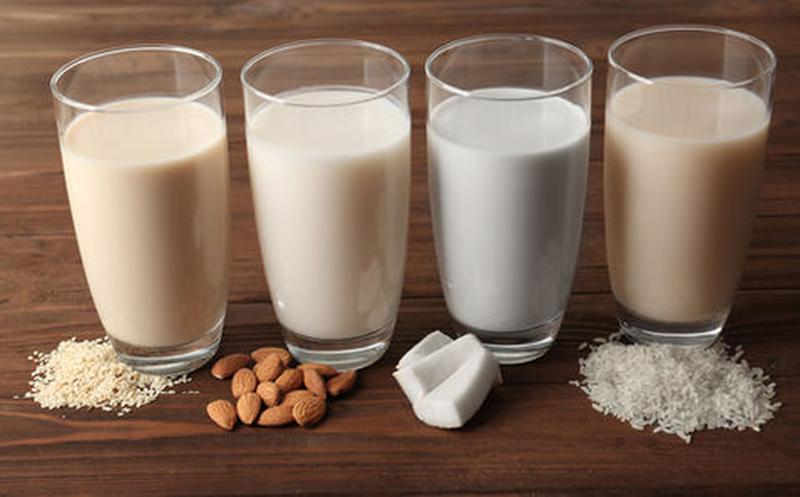We recommend balanced and varied consumption of all types of plant-based beverages, without ruling any out; they all have their virtues and we just need to be aware as we consume them that we are increasing or reducing the contribution of certain nutrients.
McGill University and its researchers lead a study published in January 2018 by the Journal of Food Science and Technology where they discovered that the most nutritious beverages after cow’s milk are soy beverages, which are more similar to the latter in terms of their protein and fat content.
Tania Mesa – Director of the Neolife Nutrition and Nursing Unit
Estefania Schoendorff – Neolife Nutrition and Nursing Unit
Veganism has increased the demand for alternatives to cow’s milk.
So-called “plant milks” occupy an increasingly significant space in our shopping carts. This tendency initially driven by vegans, lactose intolerant individuals and those allergic to the protein in cow’s milk has secured its place in the market with a number of different options.
Lactose intolerance is becoming more and more widespread among the population. The cause of intolerance to milk is lactose intolerance, which is caused by a deficit of an enzyme called lactase, which is responsible for breaking down this sugar (lactose) into its two fundamental components: glucose and galactose. When lactose remains undigested because it has not been divided, characteristic symptoms appear such as indigestion, flatulence, diarrhea and abdominal pain.

Food allergies are caused by the proteins in those foods, whatever they are. With milk protein allergies, the organism produces specific IgE antibodies (anti-casein, anti-betalactoglobulin and/or anti-alphalactalbumin ), and the clinical manifestations are immediate, appearing within a few minutes of ingestion. Lactose-free milk does not prevent this problem because it continues to keep its proteins intact.
Veganism, whose practitioners say is, “a philosophy of deep respect for the animal world”, is not a simple diet. They are against livestock farms and consider cow’s milk is well-suited to meet the nutritional needs of calves, but not the nutritional needs of humans.
For all of these reasons the demand for alternatives to cow’s milk has increased, and the food industry is aware of this. In addition, all “plant milks” whatever their origin may be, contribute fewer calories than cow’s milk, and let’s not forget that we live in a society concerned with weight.
The approach to this problem of not consuming cow’s milk has been the introduction of alternative plant-based beverages such as almond or soy beverages, and although these have been presented in the market as “healthy milk sources” for several decades, little research has been done to understand the nutritional implications of consuming these plant beverages in the short and long-term. In addition, consumers associate these alternatives with a direct substitute for cow’s milk, which may not be true in all cases. Because of this and because of the great variety that exists, the question emerges: (1) which of them is the best option if one prefers to consume them?
To answer this question, McGill University and its researchers lead a study published in January 2018 by the Journal of Food Science and Technology where they discovered that the most nutritious beverages after cow’s milk are soy beverages, which are more similar to the latter in terms of their protein and fat content (2).
This study looked at the four types of plant-based beverages most commonly consumed worldwide: soy beverages, almond beverages, coconut beverages and rice beverages. They compared their nutritional values (in their sugar-free versions) with those of cow’s milk (240 ml). The results confirmed that soy beverages have the most complete nutritional profile after milk of animal origin. In addition, the characteristics of each plant beverage were detailed, highlighting the following for each one of them:
- Soy beverages: the most consumed in the world market, it has high anti-carcinogenic properties due to the phytonutrients present in milk, such as isoflavones. It has been the main substitute for cow’s milk for four decades. Soy is the only plant milk with complete protein, i.e. it contains the eight essential amino acids including methionine and all non-essential amino acids including cysteine. Its cons include its mild beany flavor and the presence of anti-nutrients (natural toxins that are part of the plant’s defense system) that sometimes hinders their absorption and digestion. However, many anti-nutrients are present in other foods, and when treated properly through fermentation or cooking they are eliminated and maintain their beneficial properties.
- Rice beverages: characterized by their sweet taste but lower nutritional content, they are lactose-free and a valid option if you’re allergic to soy or almond. Due to its high carbohydrate content its consumption must be controlled.
- Coconut beverages: these beverages are especially rich in saturated fats, hence their consumption should be moderate. They help to reduce the levels of “bad” cholesterol (LDL) associated with cardiovascular diseases. Their nutritional value decreases if stored for more than two months.
- Almond beverages: their high monounsaturated fatty acid content helps maintain weight and reduce LDL cholesterol levels, but they require a complementary nutrient intake due to their poor protein content.
Despite all the advantages these “plant milks” have over cow’s milk, we need to keep in mind that most of the preparations on the market contain an excessive amount of sugar that is detrimental to our health; it is therefore extremely important to read the label in order to consume the healthiest formula.
At Neolife, we offer the most innovative tests for the detection of hypersensitivity, intolerance or food allergies (lactose, fructose, sorbitol, gluten, etc.) in order to personalize and adjust nutrition to each person’s needs.
We recommend balanced and varied consumption of all of these beverages, without ruling any out provided there is no pathology, since they all have their virtues and we just need to be aware as we consume them that we are increasing or reducing the contribution of certain nutrients, as the case may be.
BIBLIOGRAPHY
(1) https://link.springer.com/article/10.1007%2Fs13197-017-2915-y
(2) https://www.sciencedaily.com/releases/2018/01/180129131311.htm
